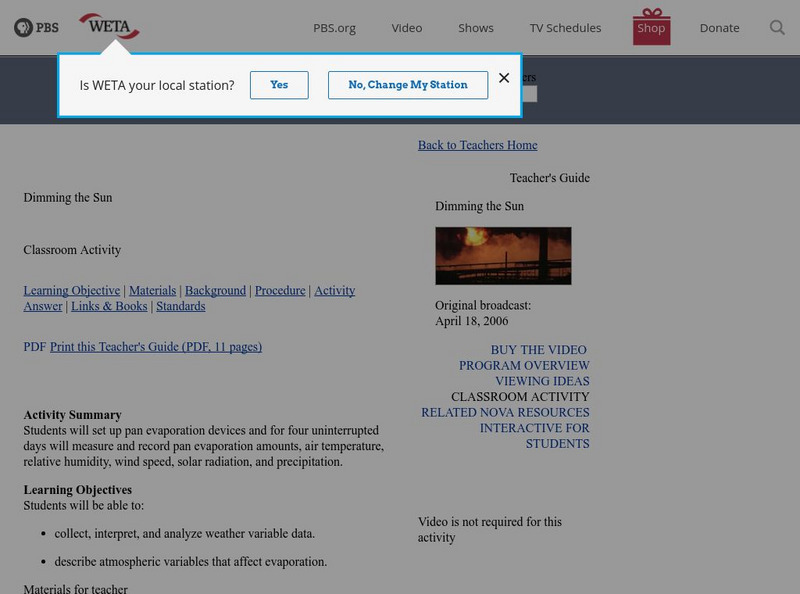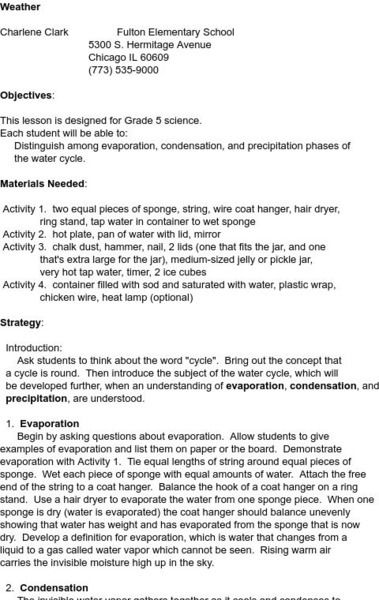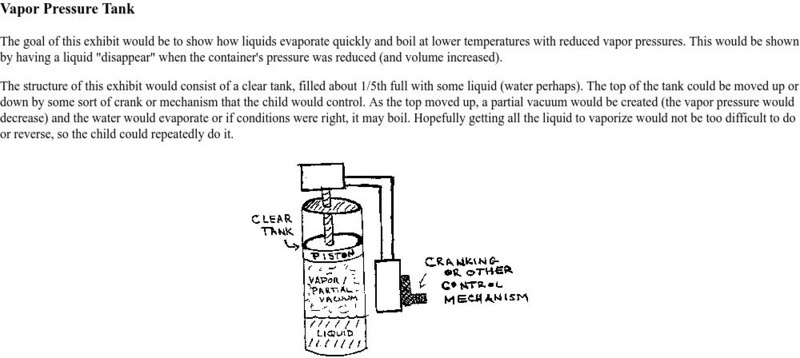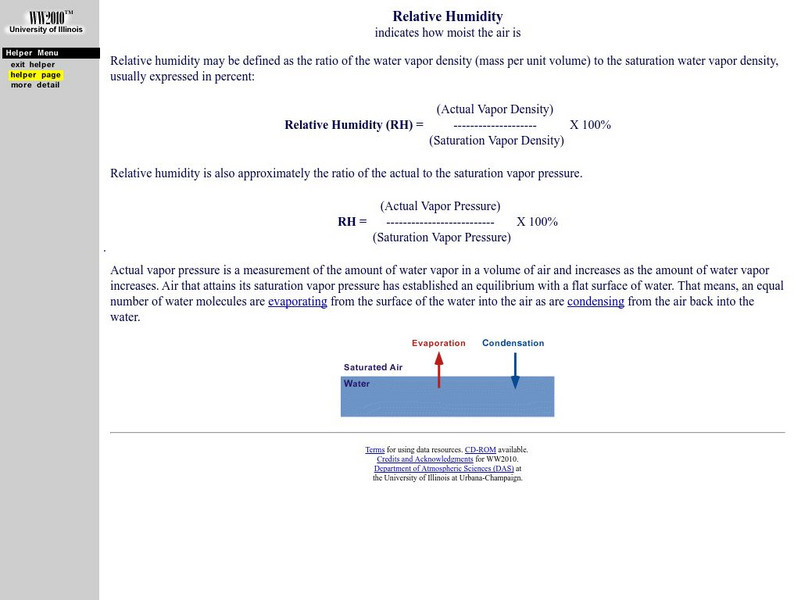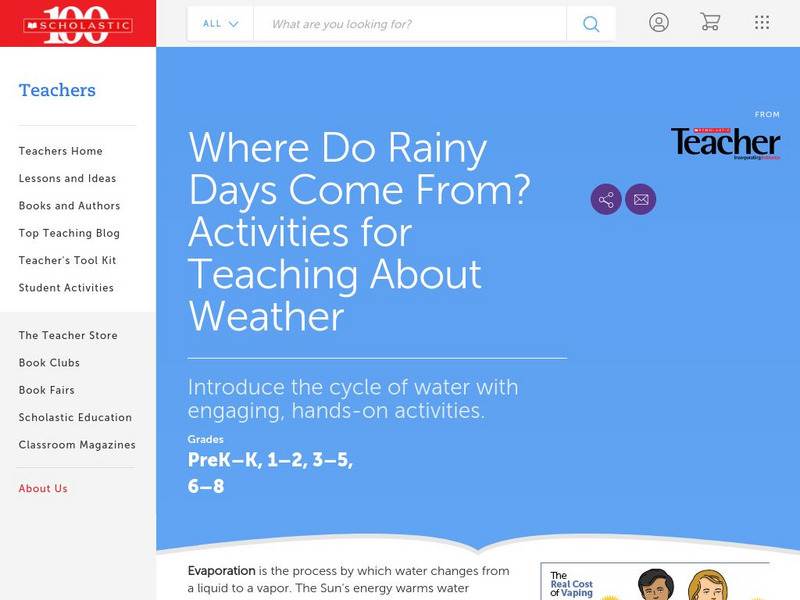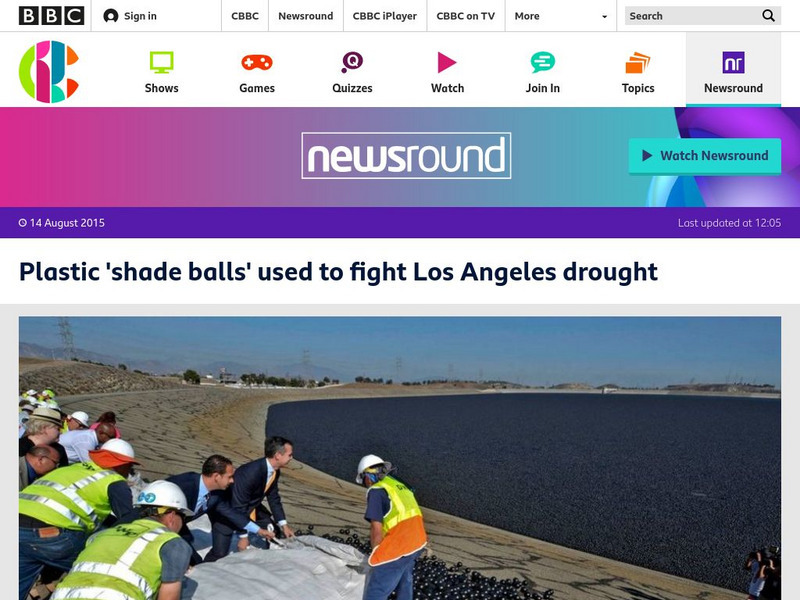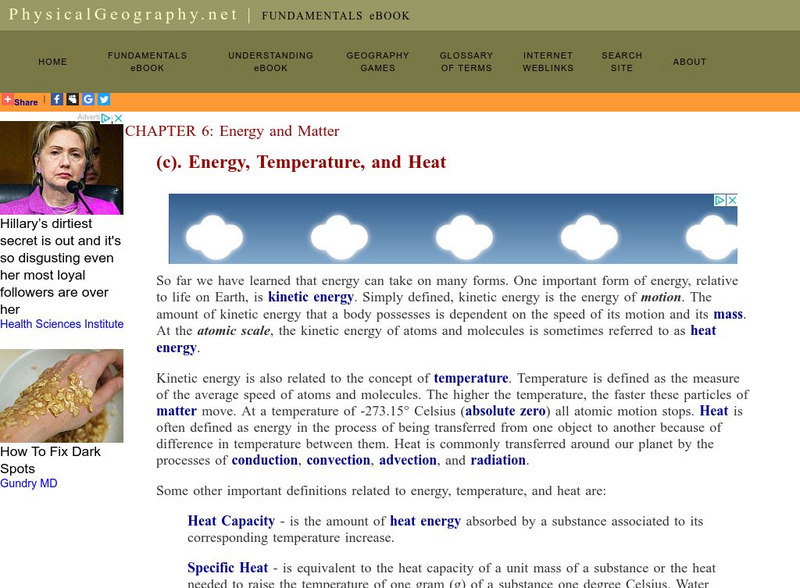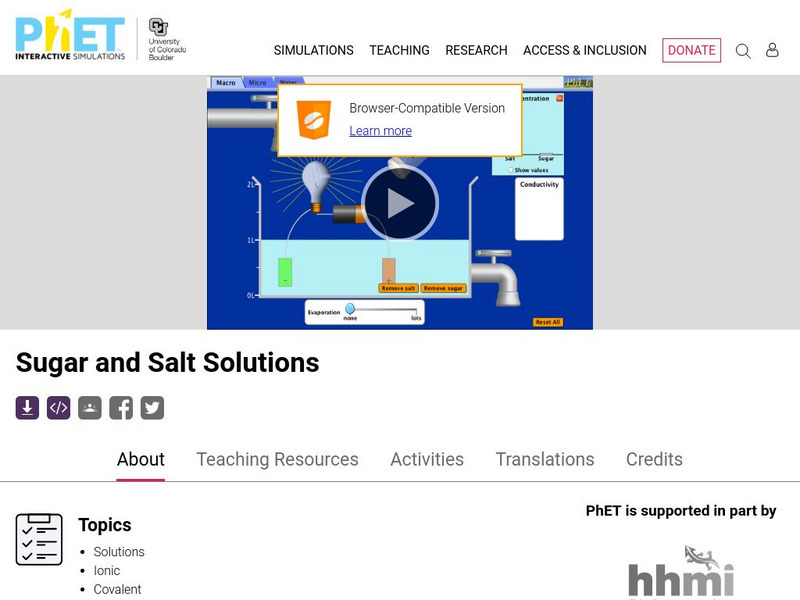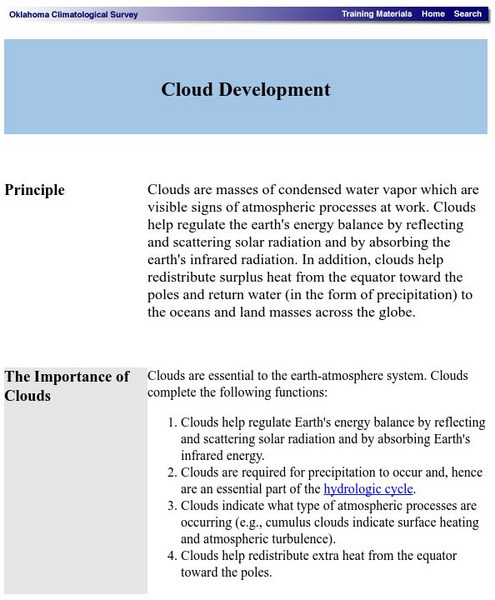Utah Education Network
Uen: Trb 4:1 Investigation 2 Why Does a Puddle Shrink?
Classroom activity helps students understand evaporation.
TED Talks
Ted: Ted Ed: The Chemistry of Cold Packs
If you stick water in the freezer, it will take a few hours to freeze into ice. How is it, then, that cold packs go from room temperature to near freezing in mere seconds? John Pollard details the chemistry of the cold pack, shedding...
PBS
Pbs Teachers:dimming the Sun
Conduct an experiment and investigate how air temperature, relative humidity, wind speed, solar radiation and precipitation affect evaporation. Graph the data collected during the experiment.
Science and Mathematics Initiative for Learning Enhancement (SMILE)
Smile: Weather
This lesson plan focuses on teaching students to distinguish among the evaporation, condensation,and precipitation phases of the water cycle.
NOAA
Noaa: National Weather Service: Simplified Hydrologic Cycle
The National Weather Service offers information on the processes that make up the water (hydrologic) cycle, including evaporation and transpiration, precipitation, run-off, infiltration, and percolation. Has a good illustration and...
University of Chicago
Ancient Mesopotamia: The First Farmers [Pdf]
In this instructional activity our class can try an experiment to show how constant irrigation, with repeated evaporation of water that left salts in the soil, eventually ruined much farming land in southern Mesopotamia.Learners can fill...
Carnegie Mellon University
Carnegie Mellon: Vapor Pressure Tank
Basic design of a demonstration machine that will lower the vapor pressure and cause water to evaporate at room temperature.
University of Illinois
University of Illinois Urbana Champaign: Relative Humidity
Describes what relative humidity is, shows how it is calculated, and how it is related to evaporation and condensation.
Bill Nye
Bill Nye: Sock It to Me
This tutorial by Bill Nye explains how evaporating water (or sweat!) can cool you down.
CK-12 Foundation
Ck 12: Physical Science: Boiling
A module reviewing over how vaporization occurs and its difference from evaporation. Also, review over the definition of boiling point. Module includes a video, pictures, explanation, and review questions.
Science Fun for Everyone
Science Fun: Olympic Medals
Create your own Olympic medal out of clay with the help of an adult. Watch as your design hardens over time as the water in the clay evaporates.
BBC
Bb Ci Schools: Revisewise Science: Solids, Liquids, Gases
This site contains an interactive activity in which students can learn about the three states of matter. There is also a factsheet that lists numerous properties of liquids, solids, and gases. The factsheet also uses water as an example...
Other
The Hydrological Cycle an Human Impact on It. [Pdf]
The hydrological cycle is usually called a recurring consequence of different forms of movement of water and changes of its physical state on a given area of the Earth. The role of different processes in the hydrological cycle and their...
National Health Museum
Access Excellence: Determining Transpiration From a Schoolyard Tree
A good project to link math skills with ecology. Hands-on activies help students understand the role of trees in ecosystems.
University of Oregon
University of Oregon: Global Climate Animations
Check out this site for global climate animations. "Get a feel for why we have seasonal weather changes or why other regions have different weather than you do."
E-learning for Kids
E Learning for Kids: Science: Loch Ness: What Happens When Solids and Liquids Are Heated or Cooled?
Students will look at what happens to different types of matter when they have a change of state.
Scholastic
Scholastic: Where Do Rainy Days Come From?
Find out more about rainy days when you check out this resource, which features hands-on interactive activities, experiments, fun facts, and more.
ClassFlow
Class Flow: Weather
[Free Registration/Login Required] This flipchart explores weather related vocabulary, including the water cycle, precipitation, condensation, evaporation, storms, and weather instruments.
BBC
Bbc Newsround: Plastic 'Shade Balls' Used to Fight La Drought
Article reports on the ways in which shade balls are being used for water conservation in LA.
Other
Fund. Of Phys. Geography/energy, Temperature, and Heat
A page describing (in part) the distinction between energy, temperature and heat. Includes a graphic illustrating the quantity of energy needed to transform water between various states. Methods of thermal energy transfer (convection,...
Bill Nye
Bill Nye: Sock It to Me
Try this at-home science experiment to learn how warm water (sweat) makes us feel cooler.
University of Colorado
University of Colorado: Ph Et Interactive Simulations: Sugar and Salt Solutions
What happens when sugar and salt are added to water? Pour in sugar, shake in salt, and evaporate water to see the effects on concentration and conductivity. Zoom in to see how different sugar and salt compounds dissolve. Zoom in again to...
Oklahoma Mesonet
Oklahoma Climatological Survey: Cloud Development
This site explores the importance of clouds and how clouds are formed. Content details common atmospheric cooling mechanisms and atmospheric stability.
National High Magnetic Field Laboratory
Magnet Academy: Bubble Chamber 1952
To understand a bubble chamber, picture the long, white streak an airplane leaves in its wake. That's water vapor produced by condensation from the plane's hot exhaust. Until the water particles evaporate, you can follow the streak to...
Other popular searches
- Wind Water Evaporation
- Water Evaporation Art
- Properties Water Evaporation
- Water Evaporation Rate
- Water Evaporation in Hands




